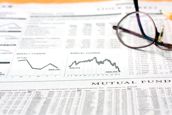News
The latest news on this change — carefully culled from the world wide web by our change agents. They do the surfing, so you don't have to!
What to Know About ETFs

With many stocks in the tank, some investors are turning to ETFs, but there are some pitfalls to watch out for.
For those unfamiliar with ETFs, these are Exchange Traded Funds. They hold assets like stocks and bonds and are typically traded at the same price as the net asset value of it's underlying assets over the course of the day. The benefits, and the reason investors typically like ETFs, are security, transparency, and low fees. They've even been called the most innovative investment vehicle of the last two decades.
But, they aren't without their loopholes and there are five specific areas that investors should pay close attention to before diving in.
1. Size: Stick with funds in a mid-size to large cap...roughly $50 million or more to ensure liquidity.
2. Liquidity: This is very important with ETFs, so try to stick with companies trading around 100,000 shares per day to keep that liquidity.
3. Spreads: The higher the spread, the more money it costs you. With the recent craze, investors saw big swings in their spreads for awhile, but a typical spread should be between five and 10 cents.
4. Leverage: These types of ETFs are meant to be moved quickly and come with a fair amount of risk. They may claim double and triple market move, but make sure you can handle the risks that come along for the ride.
5. Taxes: While they offer tax advantages in most cases, many are taxed at different rates. Know what you're getting into before you sign on the dotted line.
For more information about ETFs and general information, you can do a little research on the web. One of the best basic explanations I've found is on Wikipedia (I know, I know). But, for more detailed info, talk to your financial advisor!







